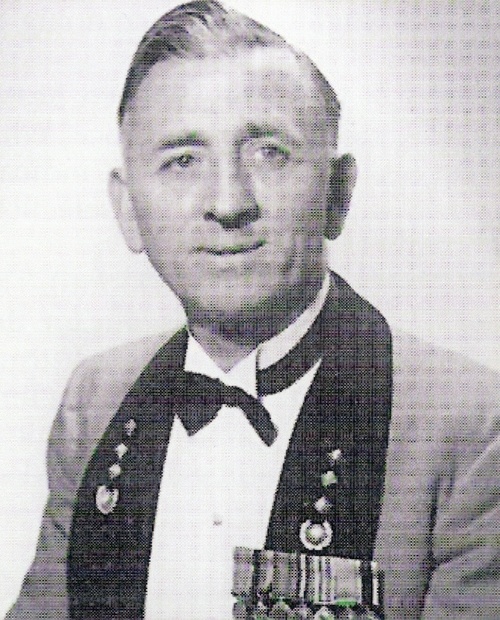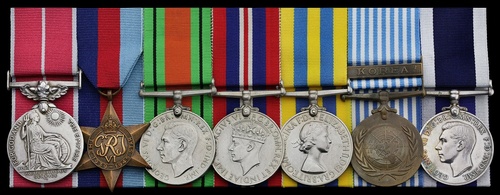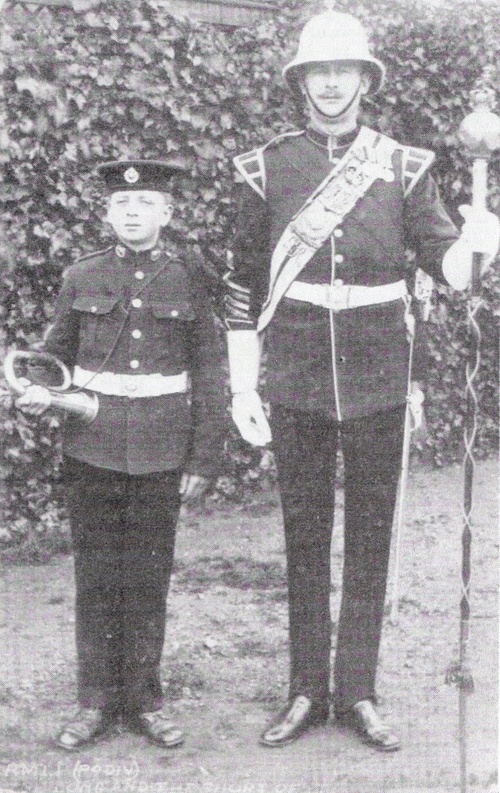Auction: 20001 - Orders, Decorations and Medals - conducted behind closed doors
Lot: 645
(x) Of Whitstable interest - the scare early Second World War British Empire Medal awarded to Lieutenant Commander E. B. Allard, B.E.M., Royal Naval Volunteer Reserve, late a Defensively Equipped Merchant Ship (D.E.M.S.) Gunlayer in the Merchant Navy, who shot down two German planes on the First Day of the Battle of France (10 May 1940) from a Belgian Canal
British Empire Medal, (Civil) G.VI.R., 1st type (Elliot Allard), naming engraved in serif capitals, with its Royal Mint card box of issue, nearly extremely fine
B.E.M. London Gazette 26 July 1940. The joint citation states:
Elliot Allard, Gunlayer S.S. "City of Brussels" (Brussels Steamship Company Ltd., London).
'S.S. "City of Brussels" was armed with a Lewis Gun and a 12-pounder H.A. gun. After unloading cargo at Brussels she was attacked, at evening, by two enemy aircraft. Allard at once opened fire with the 12-pounder. The very first shot, bursting between the two machines, caused one of the aircraft to shoot up in the air and then to fall to the ground. The second aircraft, obviously damaged, rapidly lost height and was reported by several villagers also to have fallen. In this gallant action the gunlayer was ably supported by his loaders, Fireman Webster and Gallacher; the Master, the Chief and the Second Officers, by their unfailing courage and confidence during the attack, inspired the whole crew of the vessel.'
The Master, Chief Officer, 2nd Officer and two Firemen each received a King's Commendation.
Elliot Barnard Allard, otherwise Elliot Allard was born at Blean, Whitstable, Kent on 19 September 1909, son of the bank manager Christopher Allard. The 1911 Census shows the family living at 14 The High Street, Whitstable. Trained as a Lawyer, he set up his own practice Gardner and Allard in Whitstable, and had large clients like Sir Eric Bowater, whose firm Bowater Paper Corporation was the largest newspaper print company in Europe. Additionally he was often in national newspapers in high-profile criminal cases, such as the foster father George Gerioch Gordon, accused of killing his foster son in 1950. Gordon was successfully defended by Allard.
Joining the Merchant Navy, Allard served as a Defensively Equipped Merchant Ship (D.E.M.S.) Gunlayer in Belgium during the Battle of France. On 3 April 1940 he joined his first vessel, the steamship City of Brussels, which operated in canals around Brussels in support of the British Expeditionary Force. Belgium was still a neutral country at that time, so it was common practice for military personal to masquerade as 'civilian' merchant seamen in order to enter Belgium without being interned. His exploits are best revealed in The Whitstable Times of 13 July 1946:
'Ever in Brussels before the war? Then you will remember the old railway bridge that spanned the ship canal and the lock gates at the place with the long name Capelleaubois a few miles outside the city. And even if you never saw them you must have heard of that bridge and those lock gates on the day, six years and two months ago, when the men of the free nations the world over were thrilled and uplifted by the great story of how one lone ship of the British Mercantile Marine had made history on the canal. But let us have the whole story for it has never been told in full before.
The ship was the British S.S. City of Brussels. She had gone up the canal to the Belgian capital, discharged her cargo, and was on her way down to the open sea. Captain Murray was in command, the mate was Mr. A. W. Sinclair, and she had a crew of about a dozen men. Mounted on her deck was a gun, a 12-pounder, and the gunlayer was a young solicitor from Whitstable named Elliot Allard who, making a sacrifice of his professional career three months before by volunteering for active war service, had been given a naval rating as gunlayer attached to merchant ships. He had a gun crew of two, fine, gallant lads as you would expect them to be, but both of them inexperienced and new to the game they were called upon to play. And this game, one between life and death, was to open at any minute now, although not a man on board knew it, for the date was the tenth of May 1940, the day when Goering's air squadrons made their first great attack on Belgian territory.
Leaving the doomed city early in the evening, the British ship steamed down the canal to Capelleaubois. There she waited for the lock gates to open. But the gates remained closed and as the minutes that seemed like hours dragged slowly by, the crash and the roar of exploding bombs grew ever louder. The red fires of hell were let loose on Capelleaubois that day, as later on they were to be loosed on London, Coventry, Canterbury, Whitstable and a hundred other English towns and cities, and the men on the little ship held up at the lock gates on the canal watched and waited for they knew not what. Swift action followed as a cluster of between thirty and forty German planes, in close formation, stormed across the sky towards the canal bridge. That bridge was of great strategic importance and those oncoming raiders were out to destroy it. That they did not expect to meet with any opposition was made obvious by the fact the planes were flying close together. Savagely exultant, sure of their prey, they came on at lightning speed.
Those at the gun saw their chance to make a kill. It would be easy work to bring down one of those screaming planes. The twelve pounder gun shook to the vibrating roar of the released shell as it flashed away and tore towards its mark. That mark was one of the two raiders which had dropped their bombs on the bridge and were now speeding on to overtake the planes sweeping on ahead of them. Hurrah! The upward darting shell struck the raider, ripped right through it and against the gleaming side of the second plane. Both planes, brought down by that single shot fired by the gunlayer from Whitstable, crashed in flame and smoke to utter destruction. Can't you picture the scene of jubilation staged on the little S.S. City of Brussels as the crew watched the shattered, blazing wreckage of two of Goering's finest aircraft? They scrambled ashore, for the rest of the raiders had gone on their way, and, crossing a field, gathered round the spot where one of the crippled planes hurtled down.
The swing bridge across the canal was still standing, although badly damaged by the bombing, and as it was unworkable the ship was taken back to Brussels. Here Captain Murray and his gunlayer were received at the British Embassy by Admiral Sir Roger Keyes. For his services, Elliot Allard was awarded the Medal of the O.B.E. With the help of the British Embassy he and ship-mates secured the loan of a brower's van and motored on from Brussels to Ostend. There they were held up for the best part of a week before they found a ship to take them back to England.
Upon his return to England, Elliot Allard was posted to S.S. City of London as naval gunlayer. When this ship went into dock for a time he was appointed for the same kind of duty to the S.S. Gynwood, which sailed with convoys passing through the Channel. Just after he left Gynwood to sit for examinations by the Admiralty Selection Board she was blown up and sunk. Passed by the Selection Board, he was sent to the shore establishment at Hove for the training of naval officers. He made rapid progress and became a Staff Officer Intelligence, a post he held with much success until his demobilisation from the Service at the end of last year. Posted to Leith it was part of his work to welcome and entertain important foreign visitors to Edinburgh, he made acquaintance of many notable people, distinguished representatives of both the allied and neutral nations. Among the visitors he entertained were the officers of Russian ships on their arrival at a Scottish port. He was at Leith when, in 1942, two of the ten Norwegian vessels that made a dash from the Swedish port of Gothenburg, where they had been interned, made their unexpected but welcome appearance. And it was during his term of service at Leith that the first exchange of prisoners of war took place following the arrival at the port, with a number of released British service men on board, of Swedish S.S. Drottningholm. When the time came for him to return to civil life he had risen to the rank of Lieutenant Commander.
Six years, made memorable by an excellent record of service for his country, were behind him and he came home again to Whitstable to take up the work he had put down in those dark days of 1940 so that he might be free to fight for the land of the free. Looking back, the picture that must often rise in his mind's eye, is that of two German air raiders, brought down with one shot from his twelve pounder gun, in smoke and flame in the field near Brussels ship canal, while many will remember him holding an inquest in bell bottom trousers!'
As this article infers, Allard was rapidly promoted following his B.E.M.-winning action. He was commissioned Temporary Sub-Lieutenant, Royal Naval Volunteer Reserve on 20 March 1941, rising on 20 June that year to Temporary Acting Lieutenant Commander and Staff Officer (Intelligence). After the war he set up and left a yearly Elliot Allard Trophy and Navy League Cup in Whitstable. He died in Bridge, near Canterbury, on 4 February 1956; sold with copied research.
Subject to 5% tax on Hammer Price in addition to 20% VAT on Buyer’s Premium. For more information please view Terms and Conditions for Buyers.
Sold for
£480
Starting price
£420









